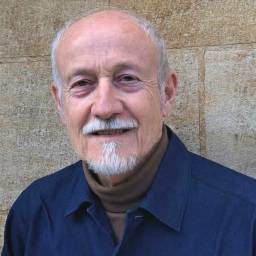Books
Roberts, D, Green, L (eds) (2021) Collaborative Practice in Palliative Care. Routledge. ISBN 9780815362050
Tadman, M, Roberts, D, Foulkes, M (eds) (2019) The Oxford Handbook of Cancer Nursing (Second Edition). Oxford: Oxford University Press.
Roberts, D (2013) Psychosocial Nursing Care. A Guide to Nursing the Whole Person. Maidenhead: Open University Press.
Tadman, M, Roberts, D (eds) (2007) The Oxford Handbook of Cancer Nursing. Oxford: Oxford University Press.
Regel, S, Roberts, D (eds) (2002) Mental Health Liaison. A Handbook for Nurses and Health Professionals. London: Bailliere Tindall.
Peer reviewed papers
Ojelabi, AO, Ling, J, Roberts, D, Hawkins, C (2022) Does interprofessional education support integration of care services? A systematic review. Journal of Interprofessional Education & Practice, 28. https://doi.org/10.1016/j.xjep.2022.100534
Yazdani, F, Rezaee, M, Rassafiani, M, Roberts, D, Abu-Zurayk, W, Amarlooee, M (2021) The COVID-19 pandemic may force the world to reflect on the pre-pandemic style of life. International Journal of Travel Medicine and Global Health, 9(3), 124-131.
Yazdani, F, Bonsaksen, T, Roberts, D, Hess, KY, Karamali Esmaili, S (2021) The self-efficacy for therapeutic use of self-questionnaire (SETUS): psychometric properties of the English version. Irish Journal of Occupational Therapy, 49(1), 21-27. https://doi.org/10.1108/IJOT-10-2020-0015
Mbozi, P, Ratcliff, C, Roberts, D (2020) Challenges Facing Women Caring for a Spouse Having Cancer Treatment: a Critical Literature Review. Open Journal of Nursing, 10, 34-68. doi: 10.4236/ojn.2020.101003.
Yazdani, F, Roberts, D, Yazdani, N, Rassafiani, M (2016) Occupational balance: A study of the sociocultural perspective of Iranian occupational therapists. Canadian Journal of Occupational Therapy, 83(1), 53–62.
Roberts, D (2016) Editorial: Should mental health nursing have a separate registration? Journal of Clinical Nursing 25 (17-18), 2391-2392. https://doi.org/10.1111/jocn.13379
Paramanandam VS, Roberts D (2014) Weight training is not harmful for women with breast cancer-related lymphoedema: a systematic review. Journal of Physiotherapy, 60: 136–143.
Roberts, D & Snowball, J (1999) Psychosocial care in oncology nursing: a study of social knowledge. Journal of Clinical Nursing 8, 39-47.
Roberts, D & Mackay, G (1999) A nursing model of overdose assessment. Nursing Times 95(3), 58-60.
Roberts, D (1998) Nurses’ perceptions of the role of liaison mental health nurse. Nursing Times 94(43), 56-57.
Roberts, D (1998) Making the connections to aid mental health. Nursing Times 94(15), 50-52.
Roberts, D. (1997) Liaison mental health nursing: origins, definition and prospects. Journal of Advanced Nursing 25, 101-108.
Roberts, D (1996) Suicide prevention by general nurses. Nursing Standard 10(17), 30-33.
Hawton, K, Ware, C, Mistry, H, Hewitt, J, Kingsbury, S, Roberts, D, & Weitzel, H (1996) Paracetamol self-poisoning. Characteristics, prevention and harm reduction. British Journal of Psychiatry 168, 43-48.
Hawton, K, Ware, C, Mistry, H, Hewitt, J, Kingsbury, S, Roberts, D, & Weitzel, H (1995) Why patients choose paracetamol for self-poisoning and their knowledge of its dangers. British Medical Journal 310, 164.

